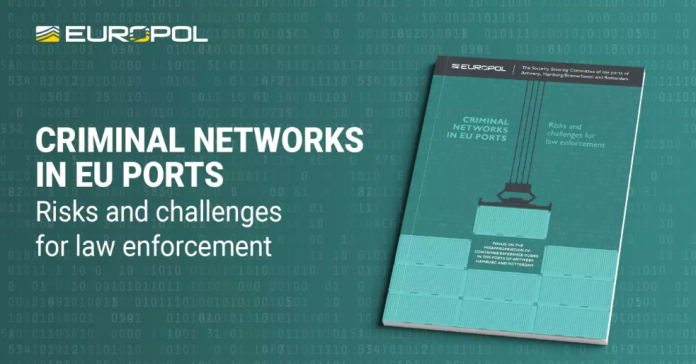Europol has launched a joint analysis report with the Security Steering Committee of the ports of Antwerp, Hamburg/Bremerhaven and Rotterdam that looks into the risk and challenges for law enforcement posed by criminal networks in European Union (EU) ports.
The EU’s critical infrastructure – notably highways, railways and ports – enables the EU way of life, where free movement of goods and people is a foundational and major factor for economic growth, personal freedom and prosperity, according to Europol. Criminal networks, however, driven by the constant desire of growing profits and expansion of their illegal activities, are increasingly working toward the infiltration of and control over major logistical points.
EU ports are examples of such major hubs, which is why the Security Steering Committee of the ports of Antwerp, Hamburg/Bremerhaven and Rotterdam, together with Europol, agreed to draft a joint analysis report assessing the threat of infiltration of port infrastructure by organised crime in the EU.
The main findings of the research are that the use of misappropriated container reference codes (or so-called PIN code fraud) is gaining traction among criminal networks as a modus operandi for extracting illicit goods from ports. Next, criminal networks arrange the infiltration of ports by coordinating local networks of corrupted port insiders.
As a side effect of the criminal operations in ports and the rivalry it entails, violence often spills out of major transportation hubs onto the streets of surrounding cities, where competition for distribution takes place.
Ylva Johansson, European Commissioner for Home Affairs, commented, “The Europol report on criminal networks in ports illustrates what we are up against. It lays bare the sophistication of criminal drug gangs, their strength, and their savagery.”







